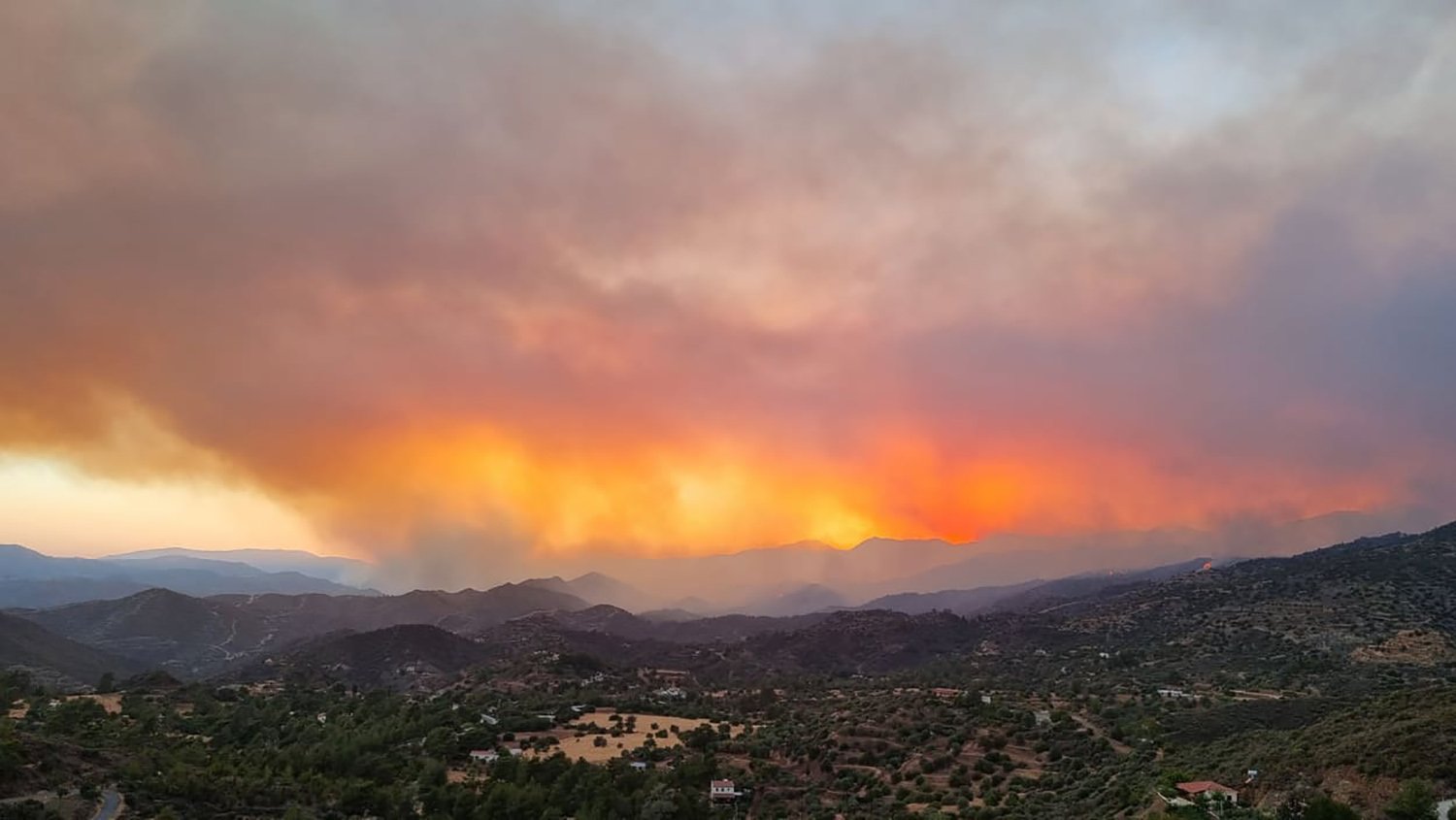There was not a hint of exaggeration when the head of the Forestry Department, Charalambos Alexandrou, likened the state of the island’s vegetation to “gunpowder” and warned that “every day the risk of fires is present”. A walk anywhere in the countryside, and especially the forests, proves his point – the undergrowth is so dry it is like stepping on crisps. Anyone can understand how easy it would be for a fire to start.
We have all been seeing the destruction caused by the raging fires in Greece and realise how difficult it is to stop them in such dry conditions, no matter how much firefighting equipment and manpower is recruited. The EU has sent nine aircraft, 1000 personnel and 200 vehicles to help the firefighting in Greece while support has also been sent to Italy, North Macedonia and Albania which are also dealing with big blazes. In Turkey, where wildfires have been raging since the end of July, rainfall at the weekend proved vital.
We have also experienced a big blaze last month in which four people died and there have been smaller fires that have been brought under control relatively quickly since then. The risk of fires, however, remains at red alert level, and even though Alexandrou said, “we now have more resources at our disposal for an immediate response,” nobody would want this readiness to be tested. Even in countries with an abundance of firefighting resources like the US and Australia bringing wildfires under control has been a gigantic struggle.
While it was encouraging to hear that we now have two land water tankers in each forest district, more vehicles and firefighting aircraft, July’s big fire showed that these were not enough as we had to rely on support from other countries. The Forestry Department has done work for preventing the spread of forest fires, but we suspect more needs to be done, and the government needs to invest more in firefighting aircraft, all-terrain vehicles and water depots. It could cut 10 per cent from the defence budget and use it for a firefighting plan of action, because the fire risk will be with us every year during the summer period, which often stretches to five months.
We must hope there will be no big fires, but extended dry conditions are becoming a fact of life, and as the Sunday Mail reported in its last issue, the average summer temperatures have been rising. The UN report on climate change, released on Monday, said global warming will boost the intensity and frequency of heat extremes, among other things. The government cannot ignore these warnings and must start thinking very seriously about drawing detailed plans for dealing with fires and should call in experts to help. We must take all precautions necessary to try to avoid experiencing what is happening in Greece.






Click here to change your cookie preferences